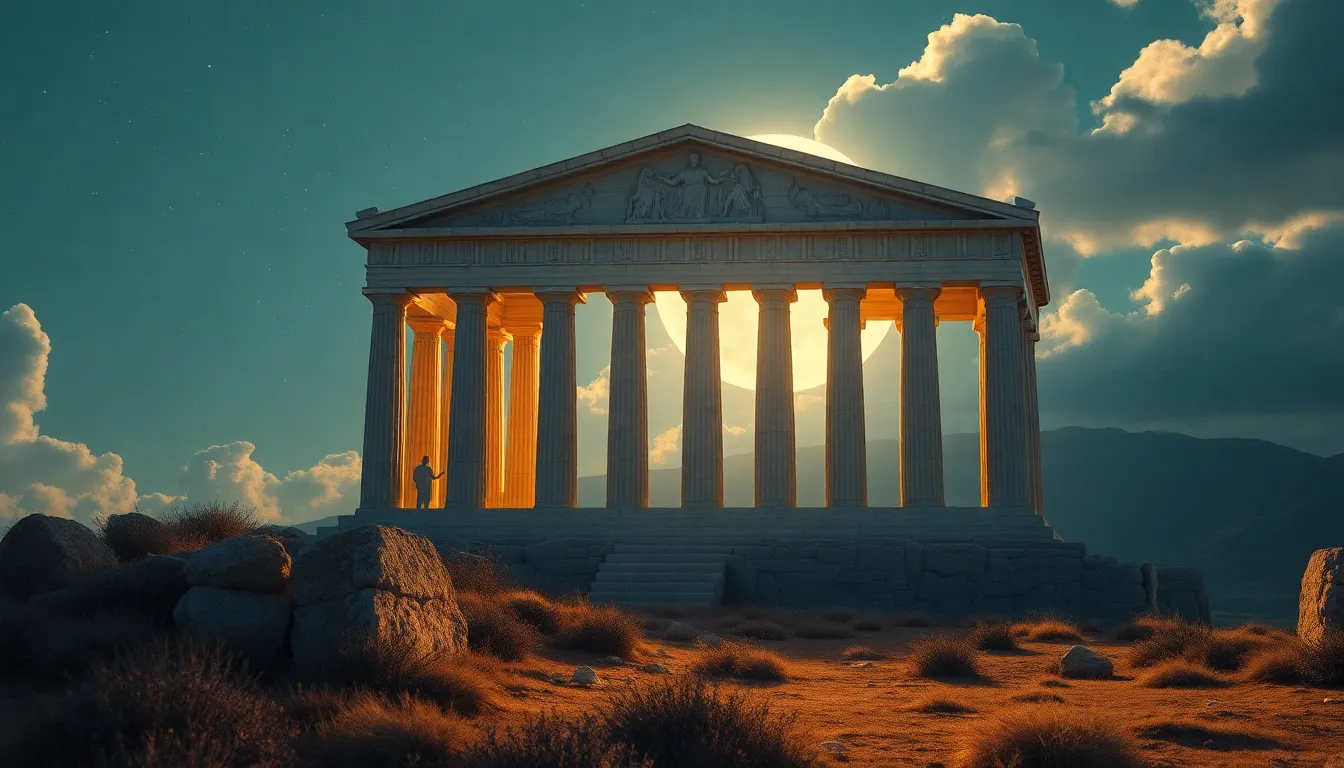The Cosmic Influence of Uranus: Myths That Shaped Civilization
I. Introduction
Uranus, the seventh planet from the sun, is a distinctive celestial body recognized for its unique blue-green hue and its unusual axial tilt. In both astronomy and astrology, Uranus symbolizes innovation and rebellion, influencing various aspects of human thought and culture. Throughout history, mythology has played a crucial role in shaping our understanding of celestial bodies, and Uranus is no exception. This article aims to explore the myths surrounding Uranus and their profound impact on civilization.
II. The Discovery of Uranus: A New Era in Astronomy
The discovery of Uranus in 1781 by Sir William Herschel marked a pivotal moment in the history of astronomy. Prior to this discovery, the known planets were Mercury, Venus, Mars, Jupiter, and Saturn. Uranus was the first planet discovered using a telescope, which opened new avenues for astronomical exploration.
The significance of Uranus’s discovery lies not only in its addition to the list of known planets but also in the shift it represented in scientific thought. The initial reactions to Uranus were mixed; some viewed it as a mere curiosity, while others recognized its potential to challenge existing astronomical models.
III. Ancient Perspectives: Pre-Uranus Mythologies
Before the discovery of Uranus, ancient civilizations constructed elaborate mythologies around the celestial bodies they could observe. The sun, moon, and five visible planets were imbued with significance, each representing various deities and forces of nature.
- In Greek mythology, for instance, the sun was often associated with Helios, while the moon was linked to Selene.
- The five visible planets were associated with gods like Hermes (Mercury), Aphrodite (Venus), Ares (Mars), Zeus (Jupiter), and Cronus (Saturn).
As a result, ancient societies sought to explain cosmic phenomena through mythological narratives that reflected their understanding of the universe. The transition to empirical observations initiated by the discovery of Uranus marked a significant shift from these mythological frameworks to a more scientific approach to understanding the cosmos.
IV. Uranus in Mythology: The Greek God and Associated Legends
In Greek mythology, Uranus is depicted as the primordial god of the sky. He is one of the earliest deities, born from Gaia, the earth goddess. Uranus and Gaia together produced several offspring, including the Titans, Cyclopes, and Hecatoncheires.
The myth of Uranus is filled with themes of power, conflict, and transformation. His relationship with Gaia becomes tumultuous as he imprisons their children within her. This act of repression leads to a rebellion led by their son Cronus, who ultimately overthrows Uranus, symbolizing the transition from chaos to order.
The symbolism associated with Uranus in Greek mythology highlights key themes:
- Chaos and Order: Uranus represents the chaotic forces of the universe, while his overthrow by Cronus signifies the establishment of a new order.
- Generational Conflict: The conflict between Uranus and Cronus reflects the struggles between generations, a recurring theme in mythology.
- Fertility and Creation: As the father of the Titans, Uranus is also associated with the creation and fertility of the earth.
V. Cultural Interpretations: Uranus in Different Civilizations
Uranus’s mythological significance extends beyond Greek culture. In Roman mythology, Uranus is identified with Caelus, the god of the sky, and shares similar attributes.
Comparative mythology reveals how different cultures interpreted the sky and celestial bodies:
- Indian Mythology: In Hindu cosmology, the concept of the sky is embodied in various deities, including Dyaus Pitar, who represents the celestial father.
- Egyptian Mythology: The sky goddess Nut is depicted as arching over the earth, representing the heavens and the cosmic order.
The influence of Uranus-related myths can also be seen in art, literature, and philosophy. The themes of rebellion, innovation, and the clash of generations continue to resonate in contemporary storytelling and artistic expression.
VI. Astrological Significance of Uranus
In modern astrology, Uranus holds a prominent place as a symbol of innovation, rebellion, and change. Astrologers associate Uranus with the following characteristics:
- Innovation: Uranus embodies the spirit of invention and originality, inspiring breakthroughs in thought and technology.
- Rebellion: This planet represents the urge to challenge the status quo and embrace unconventional ideas.
- Change: Uranus is often linked with sudden shifts and transformations, urging individuals and societies to adapt.
Astrological interpretations of Uranus have influenced societal behaviors and beliefs, encouraging individuals to embrace change and pursue personal freedom.
VII. The Scientific Revolution and Uranus’s Impact on Thought
The discovery of Uranus coincided with the Enlightenment, a period characterized by the emphasis on reason and scientific inquiry. This connection highlights the role of Uranus in shaping modern thought.
The implications of Uranus’s discovery were profound:
- Shifts in Scientific Thought: The existence of Uranus challenged traditional geocentric models of the universe, leading to a reevaluation of humanity’s place in the cosmos.
- Challenge to Traditional Beliefs: The discovery encouraged a departure from mythological explanations of celestial phenomena, paving the way for a more empirical approach to science.
- Modern Scientific Inquiry: Uranus’s discovery served as a catalyst for advancements in astronomy, fostering curiosity and exploration of the universe.
VIII. Conclusion
The influence of Uranus on civilization is multifaceted, intertwining mythology, science, and culture. From its representation as the primordial god of the sky in Greek mythology to its role in modern astrology, Uranus continues to inspire and provoke thought.
As we reflect on the intersection of myth, science, and culture, it becomes clear that the legacy of Uranus endures in contemporary society. Its themes of innovation, rebellion, and transformation remain relevant as we navigate an ever-changing world, ensuring that the cosmic influence of Uranus will continue to shape human thought and civilization in the future.




